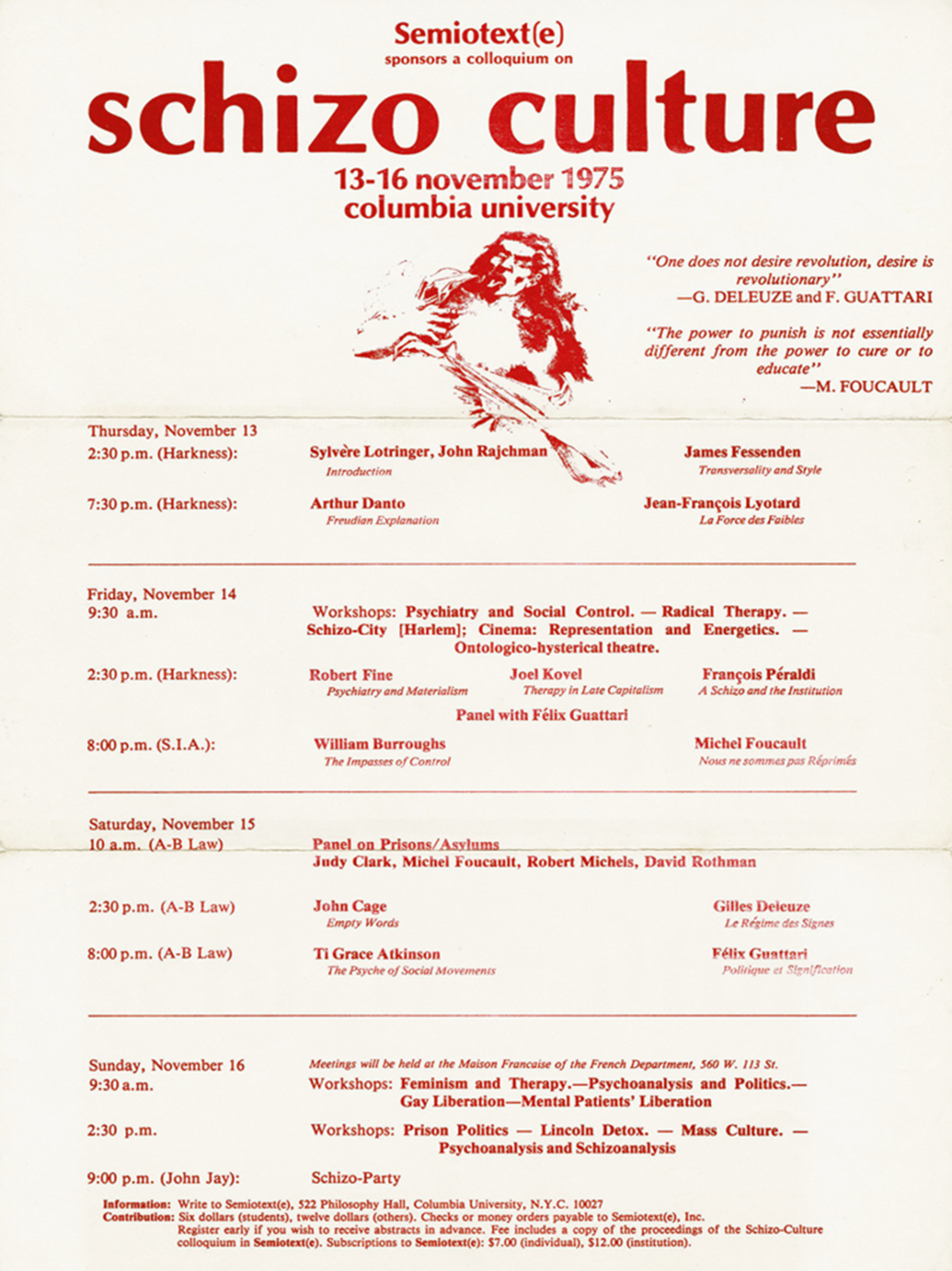This Is the End of the Sixties!
Recalling the “Schizo-Culture” slugfest
David Morris
Some of the old lines are breaking down.
—William Burroughs, “Schizo-Culture,” 1975
“Schizo-Culture” took place at Columbia University in New York from 13 to 16 November 1975. A symposium in the ancient sense only—debate, revelry, high entertainment, and fights—it marked a strained and transitional moment in recent cultural life. What began as a French department colloquium on “prisons and madness” escalated into a delirious post-sixties intellectual free-for-all; as Foucault furiously proclaimed, “This is the end of the sixties!” In fact, it announced the start of something else.
The idea came when Sylvère Lotringer was in Paris, looking for a route out of academia. He had recently befriended Félix Guattari—co-author of Anti-Oedipus, an incendiary text which had recently emerged from the tensions of May 1968—and with then-student John Rajchman, the three made plans to bring together a group (largely unknown in the US) of soixante-huitard philosophers—Guattari, Gilles Deleuze, and François Lyotard—with figures from the American avant-garde, such as William Burroughs and John Cage, who were thinking along similar lines.

It was also a fine opportunity to put some post-1968 ideas into practice: inviting speakers from diverse disciplinary and ideological perspectives, encouraging dialogue and disagreement; combining spectacle and philosophical talk, grassroots activism and radical theory; and utilizing fluid and disparate modes of exchange, from public conversations and roundtables to a proliferation of small-scale workshops. The press release promised “a supple structure to allow for the diversity in connection/confrontation.”
By good fortune, Michel Foucault and R. D. Laing—US intellectual stars with interests in prisons and madness—also happened to be available. Hyped in the press as an unmissable “slugfest” and selected as a “pick of the week” by the Village Voice, the weekend—organized under the auspices of Lotringer’s organization Semiotext(e)—saw a mob of over two thousand descend on the venue, a group including radicals, ex-cons, students, psychiatrists, Black Panthers, experimental theater troupes, Marxists, and extremist quasi-Marxist provocateurs.
Naturally, things got completely out of hand. Fights erupted in the audience, schedules broke down, talks were heckled and booed, and the speakers themselves argued constantly, changed the conference format as they wished, and upstaged and chased one other from the podium.
• • •